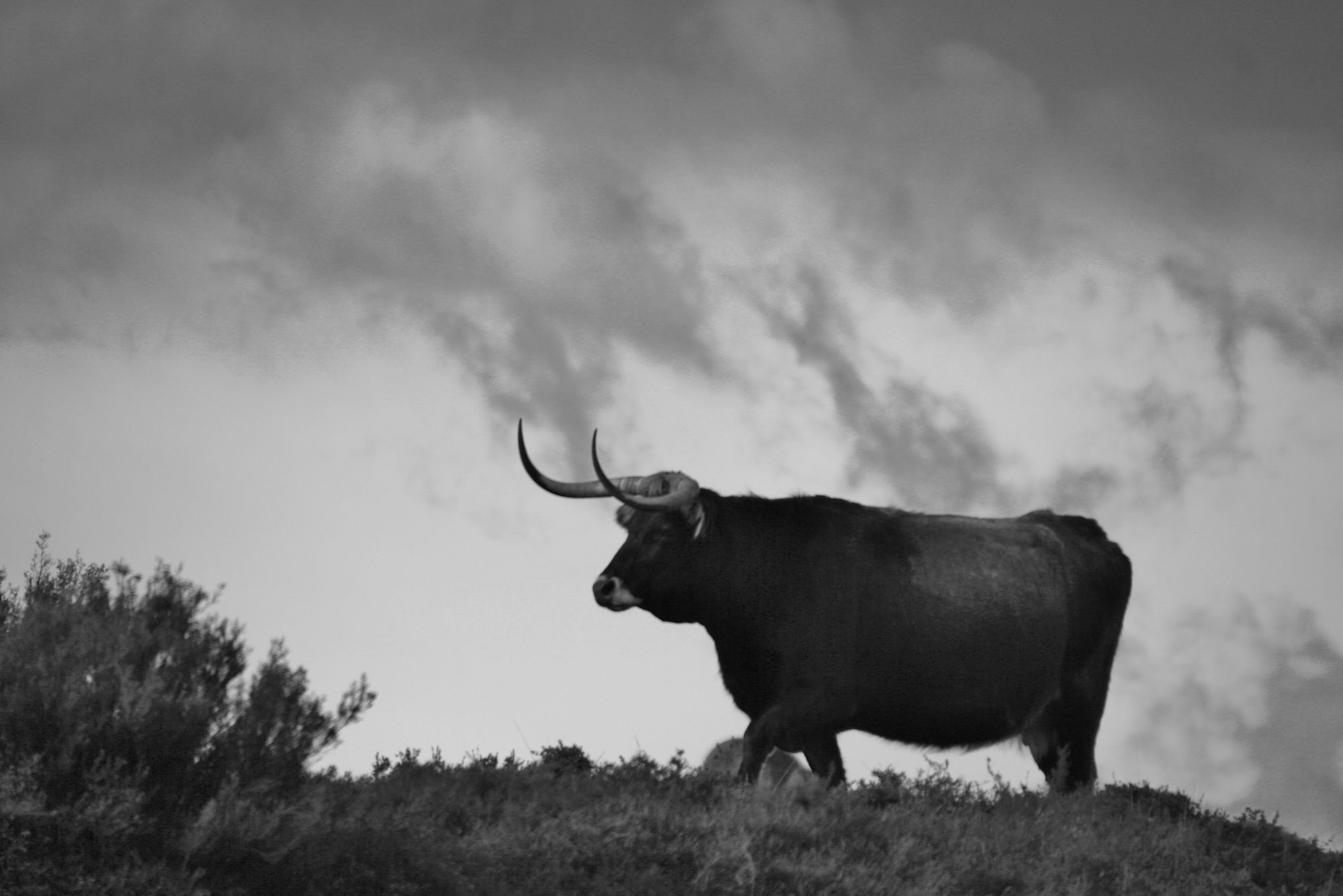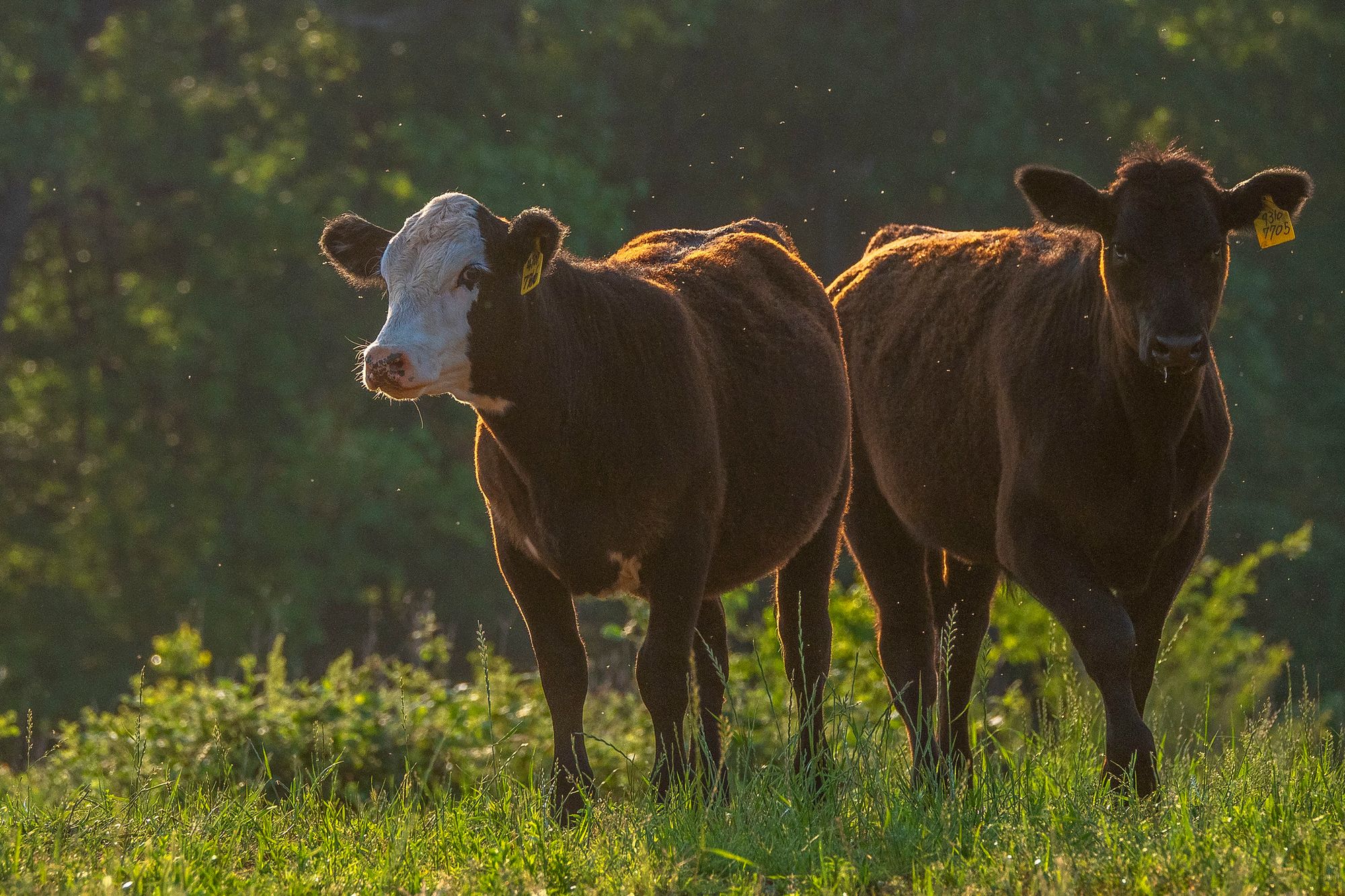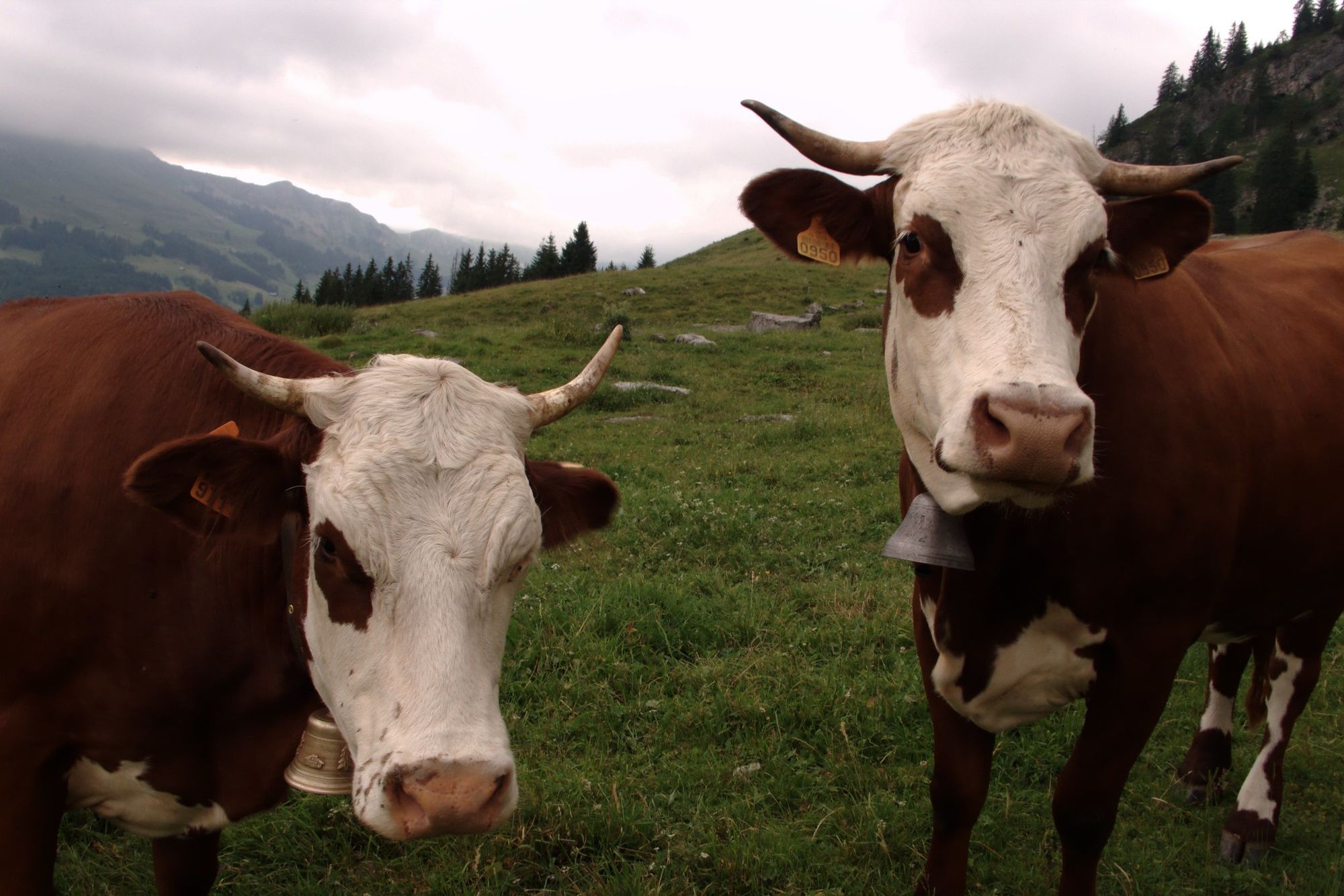Not Even A Goddamn Cow
This week a comedian went viral…… for something good??

If you can, please subscribe for $6/month to keep this newsletter going.
Did you see this video by Vic DiBitetto that was all over Twitter and the news a few days ago? He’s a New York-based comic with a few reasonable complaints about the federal stimulus packages, namely that $1,200 isn’t nearly enough to cover the bills we all still have to pay. It’s a good rant, a fun rant, and a rant that speaks to the power comedians still have to affect millions of people from their homes (or cars), so long as they speak to the world those people are living in.
It also reminded me of an anecdote in one of the best books I read last year, What You Have Heard Is True, a memoir-of-sorts by the poet Carolyn Forché. In the late 70s she was living and working in southern California when a man named Leonel Gómez Vides showed up at her doorstep. She was 27 at the time; he was 37, a cousin of the Nicaraguan-Salvadoran poet whose work she was translating, and had driven from El Salvador with his two young daughters to speak with her. Over the course of a few days he caught her up on Salvadoran history and the country’s current, volatile climate—the poverty of its working class, the military dictatorship that routinely disappeared dissidents and misappropriated US aid, the right-wing death squads, the seeming inevitability of civil war. Eventually he persuaded her to come to El Salvador and witness what was happening firsthand, so she could someday tell the rest of the world. He didn’t want a journalist, he told her; he wanted a poet.
The bulk of What You Have Heard Is True recounts Forché’s experiences in El Salvador between 1978 and 1980. Gómez, a sort of power broker with unexplained ties to the country’s ruling class as well as its common people, introduces her to farmers and military rulers, guerrillas and dissident poets afraid to tell her their names. It’s not a white savior narrative, to be clear; none of her stories, even the most horrifying ones, when she witnesses prisoners locked in boxes and hides from death squads, feel pornographic. It is, though, a coming-of-age story, both politically and artistically. “I was at the time quite young, with a romantic view of the world, and I was also an American, which made this worse,” she writes. She was frustrated with her efforts to translate Gómez’s cousin, the poet Claribel Alegria, because she felt divorced from the work’s real-world context. So she went to understand it.
And because Gómez asked her to. The book is framed as a memoir, but it often feels like the real subject is Forché’s strange, charismatic guide, who seems to know everyone in El Salvador and who later plays an important behind-the-scenes role in peace talks that ended the war. He’s swoops into her life as a sort of teacher, then time and again refuses to teach, instead insisting putting her in circumstances—sometimes deadly circumstances—where she might learn the answers herself. "Pay closer attention," he tells her at one point, when she's failed to observe details about a suspicious-looking man in a church. "Someday you will be talking to your own people. Writing for your own people. I promise you that it is going to be difficult to get Americans to believe what is happening here. For one thing, this is outside the realm of their imaginations. For another, it isn't in their interests to believe you. For a third, it is possible that we are not human beings to them."
Okay, I think that’s enough background. I said the Vic DiBitetto video reminded me of one particular anecdote in the book. It’s a story Gómez tells Forché during one of their many trips through the El Salvadoran countryside, en route to visit the small settlements where farmers live in houses built from packing crates. They’re driving down an unpaved, rocky path when Gómez points out a small boy leading a cow by a rope. Here’s what he says.
He's taking that cow to graze. Do you want me to tell you a story about a cow? No, really, this is interesting. Several years ago, a small coffee farmer made arrangements for six campesinos from a nearby village to have a meeting with some businessmen in the capital. Well, okay, it was me. I was that coffee farmer. I thought it would be good for them to talk. On the morning we were supposed to go, the campesinos were late. I thought they had become nervous and had changed their minds. Finally, they arrived, all in clean shirts, their best clothes, but they were unusually quiet. One rode with me, the others in the back of my pickup. It happened that I knew their village needed a milk cow. On the way, I explained to the one riding with me that we would listen to what the businessmen had to say about their future plans for the economy and how these plans would affect campesinos. The businessmen were going to talk about farming cooperatives, new industries, and the improvement of roads, hospitals, and schools. I proposed that we listen to everything they said, and afterward the campesinos should ask the businessmen for a cow."
"We can do that?"
"Yes. Just ask them for a cow."
"Okay, so we go into this carpeted conference room where graphs and charts have been set up. The businessmen were more nervous than the peasants, but finally we got started. After the presentation, the campesinos asked some questions, but the businessmen directed their answers at me rather than at the campesinos. It was almost like they wanted me to translate for them. They said tell the men this and tell the men that. Then the campesino who had ridden with me thanked the businessmen on behalf of the others and said: 'What we really need at this time is a cow. We need milk for our village.' The businessmen looked at one another, then at me. 'A cow?' one of them said. 'We cannot give these people a cow.' I asked why not. 'You know why not,' he said to me. 'If we give them a cow—we can't be setting that kind of precedent.'
"So you see? Not even a goddamn cow."
"What did the campesinos think?"
"I didn't ask them what they thought. But I think they understood perfectly."
Not even a goddamn cow.
I like this song from the new Laura Marling album.

Carolyn Forché, “The Colonel”:
WHAT YOU HAVE HEARD is true. I was in his house. His wife carried
a tray of coffee and sugar. His daughter filed her nails, his son went
out for the night. There were daily papers, pet dogs, a pistol on the
cushion beside him. The moon swung bare on its black cord over
the house. On the television was a cop show. It was in English.
Broken bottles were embedded in the walls around the house to
scoop the kneecaps from a man's legs or cut his hands to lace. On
the windows there were gratings like those in liquor stores. We had
dinner, rack of lamb, good wine, a gold bell was on the table for
calling the maid. The maid brought green mangoes, salt, a type of
bread. I was asked how I enjoyed the country. There was a brief
commercial in Spanish. His wife took everything away. There was
some talk then of how difficult it had become to govern. The parrot
said hello on the terrace. The colonel told it to shut up, and pushed
himself from the table. My friend said to me with his eyes: say
nothing. The colonel returned with a sack used to bring groceries
home. He spilled many human ears on the table. They were like
dried peach halves. There is no other way to say this. He took one
of them in his hands, shook it in our faces, dropped it into a water
glass. It came alive there. I am tired of fooling around he said. As
for the rights of anyone, tell your people they can go fuck them-
selves. He swept the ears to the floor with his arm and held the last
of his wine in the air. Something for your poetry, no? he said. Some
of the ears on the floor caught this scrap of his voice. Some of the
ears on the floor were pressed to the ground.
May 1987

Yesterday Vulture published a long read titled “What If Improv Were Good?” I would not normally waste any time on an essay about the future of improv whose author admits in the lede that he stopped going to improv shows years ago. But given that it was published in the biggest comedy vertical around, a vertical that rarely has much else to say about the improv business, I suppose it might be worth dwelling upon.
The piece argues that the future of improv depends on the success of Thomas Middleditch and Ben Schwartz, who “offer a glimpse of what it might mean to divorce improv from its institutions” and “suggest a future where the means of performance belongs to the improvisers.” That glimpse and that future are the three Netflix specials the duo released this week. The piece does not spell out what future, exactly, the specials suggest, nor what “the means of performance” are. Its thesis seems to be that improv has a bad reputation—thanks in part to exploitative improv businesses but also to the form’s inherent earnestness—and that Middleditch & Schwartz will fix this reputational problem by separating “improvisers” from the baggage of “improv institutions.” (There is also a thread contending that because improv businesses do not incentivize their most experienced performers to stick around—by paying them—most of the people who practice improv are “amateurs,” which makes “bad improv” the “norm.” This is not true: the central tragedy of improv is the exploitation of so many talented artists.)
If there is a serious argument to be gleaned from all that, I think it might be something like this: by bringing longform improv to the mainstream, the specials will popularize a live medium inaccessible to people who don’t live near improv theaters, or otherwise seen as undesirable by people who do. This will create more demand for improv, which the market will rush to meet with more improv specials, making it possible for improvisers to make a real honest living from the form.
There are kernels of truth in this argument. Improv has been pay-to-play for pretty much its entire history, so we haven’t seen a space for “working improv comics” emerge in the same sense as we have for standup comics. (If there’s anything close, it’s improv teachers and a few theaters’ touring companies.) And Netflix has undeniably helped create bigger audiences for standup; you’ll often hear comics say that their debut special led to booking requests from far-flung markets they’d never been to. It follows that popular improv specials might have the same effect.
But we must be careful not to imbue Netflix with too much power. It hasn’t created a job—standup comic—that never existed. What it has done is give people who already have that job more opportunities to do it, in venues that were already paying for it. If Middleditch & Schwartz ends up creating a new market for improv specials, the same thing will happen: the people whose specials it buys will already be established improvisers. How do you become an established improviser? As the Vulture piece describes, more or less: by succeeding in a pay-to-play system, leveraging that success into paid TV and/or film work, then periodically returning to the old system to do unpaid shows, while booking gigs at theaters happy to pay for improv by known quantities.
This career path will not change just because improv is more popular or more reputable. It exists, right now, despite improv’s popularity. Netflix can do no more to transform the actual, ground-floor systems that produce improvisers than it can to improve decades of wage stagnation in standup.

There is a bizarre tendency among many who write about comedy to treat Netflix’s efforts to dominate the form as an obvious good. Maybe they are, in the short term, to the extent that a form benefits when its workers have more opportunities to get paid and its consumers have more variety to consume. But the logical endpoint of this effort is a monopsony, in which comedians with reduced bargaining power sell their specials for less and less, while audiences are flooded with cheap comedy that nonetheless costs more and more to watch.
It is tempting to conclude from a few comics’ eye-popping deals that Netflix will change comedy for the better, but this is backwards. As the critic Yasmin Nair argues in a fascinating 2018 essay—ostensibly a pan of Nanette but really so much more—Netflix’s buying habits do not disrupt the status quo for comics; they reinforce it. The following passage comes during her dissection of a New York Times profile of Netflix’s comedy executives, who defended lowball offers to Wanda Skyes and Mo’Nique by claiming they were algorithmically determined:
There is nothing disruptive about a practice that reinforces gendered and racial inequity: it is business as usual. If Netflix had, instead, said that it would spend some of its billions in cultivating and encouraging more comedians of colour or if it had decided, horrors, that all of its comedians would get the same, say, ten million, or one million, or a few hundred thousand, that would be new and news. Instead, boosted by [NYT writer Jason] Zinoman’s silence on the matter, they go on to extrude the usual mumbo-jumbo about their mastery of data. There are no algorithms in place, just the profit motive.
Which, frankly, is fine, in a sense. Netflix is a corporation like any other, and we have no reason to expect them to behave like anything else, and if they occasionally throw wads of cash towards charities or create programming that is designed to make us think of social justice, or pull the wool over the eyes of willing cultural critics ready to swallow their public relations coup as “exclusive” interviews, we’re generally happy to leave them alone. The problem arises in the structures surrounding Netflix, when critics like Zinoman ignore the corporatised vision of “programming” and aid and abet its key executives in creating and disseminating bullshit narratives steeped in the mystical and deeply rubbishy jargon of “algorithms” and “data” without admitting to the rather old-fashioned profit motives that are at play.
The most disingenuous part of the profile is also what is missing from nearly every other analysis of the Netflix comedy explosion: that it works for the network because it is literally the cheapest way to make massive profits.
Think about it: An actual television show costs money. The Crown is said to have cost $13 million per episode in its first season of six episodes. In contrast, a “Comedy Special” that is, in essence, like Nanette, simply a recording of a live event, requires comparatively few costs in terms of, say, costuming or makeup or set design and production. All that has to happen is for a Netflix crew to go in, set up cameras, and shoot the comics doing what they do on a regular basis. This is not, at all, to dismiss the work of stand-ups and that of directing, editing, and producing their shows, but the efforts are on a far different scale of cost than series like The Crown or Stranger Things. The profits, however, are immense in contrast.
You can see the same dynamics Nair describes in the Vulture piece, which implicitly regards Netflix as some godlike entity with the power to revolutionize an art form simply by… buying and selling it? That’s not how revolution works. The future of improv does not depend on the success of a special by two of its most famous practitioners. It does not depend on streaming services investing in improv specials by people who have already succeeded in exploitative systems that favor the rich, the white, the able-bodied, the male. What the future of improv does depend on is thousands of unpaid improv workers organizing to create more equitable and sustainable improv businesses that turn “improviser” into an actual job the way any other business creates jobs: by paying people to do the work.

Improv is really not all that different than any other form of art. Most of it is mediocre, some of it is so bad it should be a capital offense, and every once in a while it’s the best thing you’ve ever seen. It’s already very popular, despite the jokes that it’s intrinsically bad—jokes that I suspect come mostly from improvisers—and tons of people regularly pay to watch it. It’s functionally no different than stage acting, a trade that you can make a living in if you work hard, catch a few breaks, and toss in some TV or film work along the way. What distinguishes improv from other forms of live performance is very simple: its institutions have gaslit entire generations of its practitioners into believing that their work isn’t worth anything.
If iO or UCB decided at the outset to operate like an off-Broadway theater (casting actors in shows and paying them) or a music venue (giving performers a cut of the door), we might now be living in a world full of healthy regional comedy theaters where you can earn a middle class living making live comedy. Alas, the people who pioneered the form where you imagine stuff weren’t good enough at imagining stuff, and now we live in this shitty world, where the only way to make good money from comedy is by hitching yourself to massive corporations that don’t give a shit about you.
It doesn’t have to be that way! The “problem” with improv is not perceptional; it’s not that it’s not good, or that no one values it. Countless people around the world think it’s good enough to watch weekend after weekend, and they value it enough to pay for admission. The problem is with the institutions and their cultures, full stop. Vulture is correct to identify these as a problem—albeit as part of a bigger, reputational problem with the form, which I don’t think is real in any meaningful sense—but incorrect to suggest we entrust improv’s future to bigger institutions, like Netflix, which doesn’t even respect comedians enough to tell them how many people watched their special. No, the solution is not to divorce improvisers from institutions where they can form fruitful artistic communities, and then send them into an over-consolidated media wasteland designed to milk them for profit. It’s to rebuild those institutions in a way that actually serves and sustains their communities.
I wish Middleditch & Schwartz could save improv. It would be much easier for everyone if Netflix fixed all the problems. But it was easy answers, answers like “it’s just not possible to pay” and “there’s just no way to ban predators” and “there’s just too many people to consult about every big decision,” that got us into this mess. The way out is hard.
If you liked this post, please share and subscribe.


